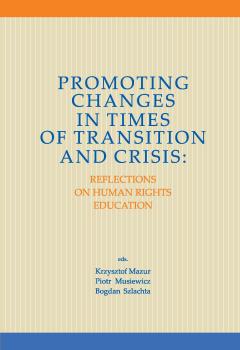The Texts, Expressions and Causes of the Arab Spring in Tunisia, Egypt, and Libya .......... 73
Synopsis
The expressions and texts which appeared with the so called Arab Spring reflect the real causes of the Arab Spring in the eyes of the people. The Arab language is full of expres-sions and deviations. By the beginning of 2011, for the first time in the recent Arab history, the pressure groups started the so called Arab Spring in Tunisia. The pressure groups in the Arab world moved to overthrow the regimes. The pressure groups usually made pressure on governments to change. However, this time they changed the rulers and the phenom-enon extended from Tunisia to Egypt, then Yemen, Bahrain and Libya. So it started in the Arab world in Africa. The Arab world in Africa is 72% of the area of the Arab world and two third of the Arabs are in North Africa. We may observe that the behaviour of El Boazeezi, which led to the shake up, was exported to other Arab States and became a phenomenon among individuals who started to imitate and burn themselves like El Boazeezi. This extended to the Arab states and there were small cases of the influence which reached Europe. It started with individuals. All these individuals who protested and burnt themselves shouted while they tried to burn themselves that they were mistreated by their government. So facing injustice or humili-ation is the common factor between El Boazeezi and others who did the same thing and used the same method to express their dissatisfactions and frustrations. All the others who burnt themselves shared with (El Boazeezi) the following things: 1. Being humiliated by the corrupted regimes. 2. Being unemployed and frustrated by the government. Pressure Groups in political Science are different from parties. They don’t want to rule, they don’t have a cadre and employees, and they don’t receive foreign support from the outside. The combination of the word “corruption” and other words which caused the shake up: There are combinations of several factors which lead to this situation. The most important factors were unemployment, poverty, and corruption. There is one factor in our point of view which helped increase the frustration of the people; the collapse of the image of the governments and rulers and the legitimacy of the Arab rulers, especially those who were accused of a lack of nationalism. Their legitimacy was shaken as the Constitutional party had lost its legitimacy in Tunisia and the people in Tunisia still demanded to have new rul-ers and no one from the ex party. The priority in Egypt was similar to that in Tunisia in fac-ing Corruption as it was a common factor. This corruption was further exposed after the collapse of the President Mubarak. The businessmen were ruling the country in the same manner they were running their businesses. Leaders had great confidence and they lost all motivation to reform as they are very confident that they are protected and immune. This study discusses the combinations of causes which were behind the so called the Arab Springs and it focuses on the new expressions and phenomena which accompanied the so called the Arab Springs.
Pages
73-85
Forthcoming
23 July 2013
Series
Categories
Copyright (c) 2013 Krzysztof Mazur, Piotr Musiewicz + et al.
How to Cite
Abudayeh, H. and S. (2013). The Texts, Expressions and Causes of the Arab Spring in Tunisia, Egypt, and Libya .......... 73. In K. Mazur & P. . Musiewicz (Eds.), & (Ed.), Promoting Changes in Times of Transition and Crisis: Reflections on Human Rights Education: Vol. Societas, Vol. 70 (pp. 73-85). Księgarnia Akademicka Publishing. https://doi.org/10.12797/9788376383651.07





